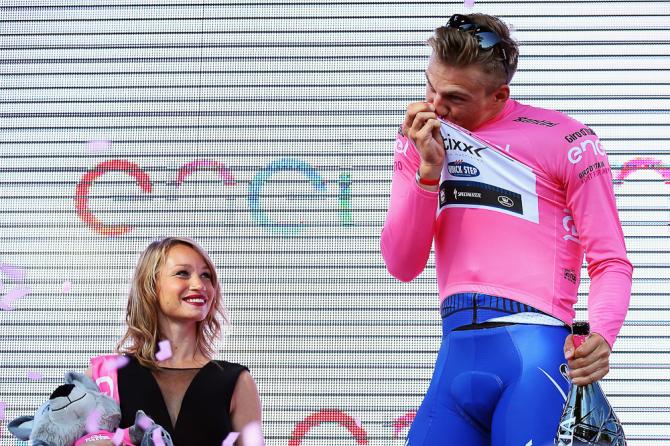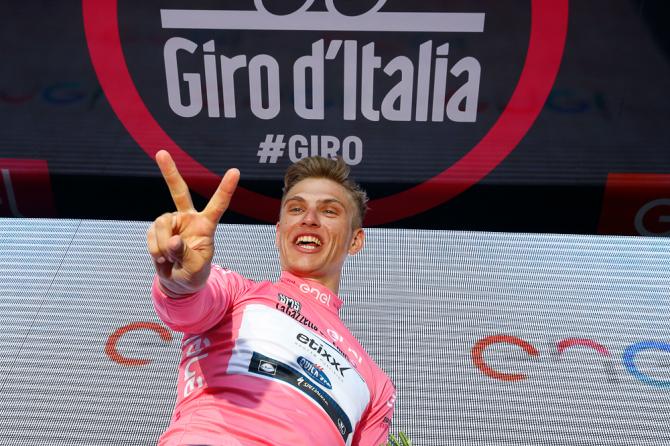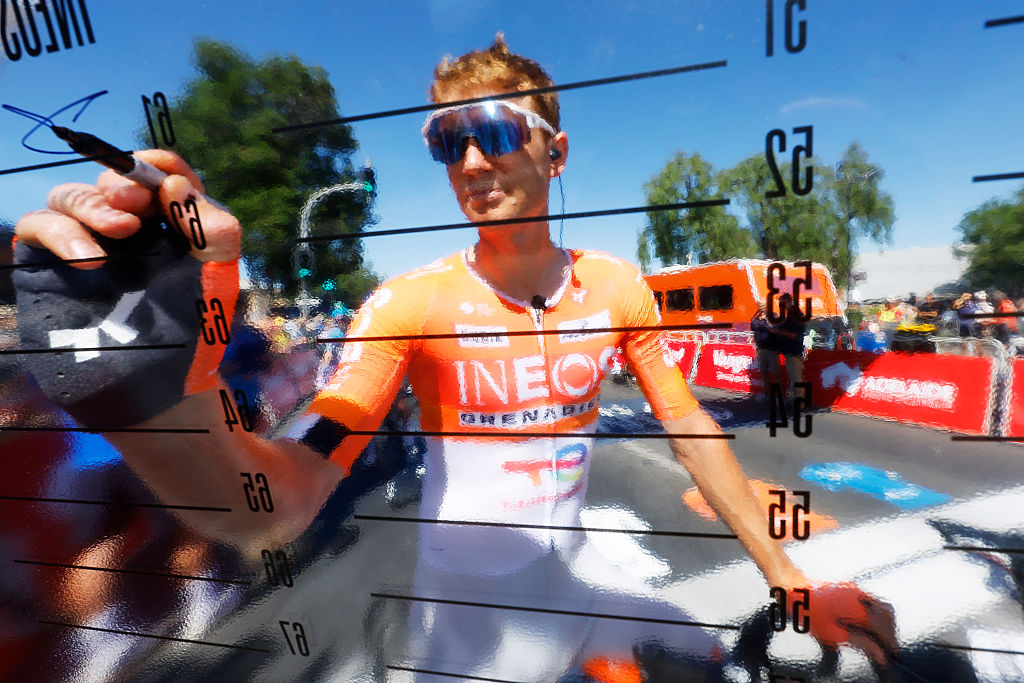Inside Marcel Kittel’s 'inexperienced' leadout train
The key ingredients in what is proving to be a winning recipe
The latest race content, interviews, features, reviews and expert buying guides, direct to your inbox!
You are now subscribed
Your newsletter sign-up was successful
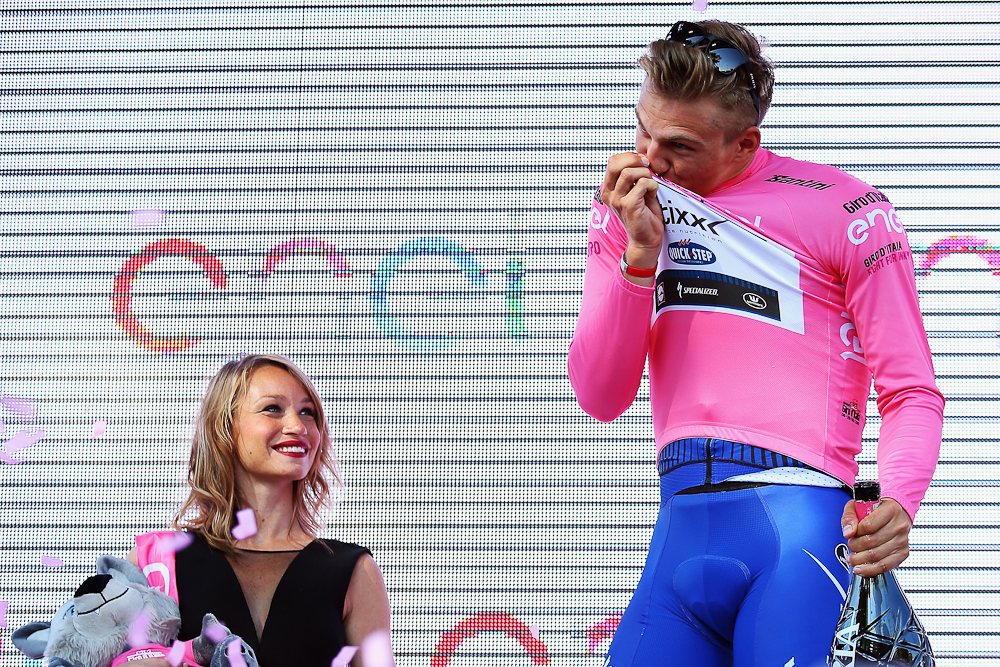
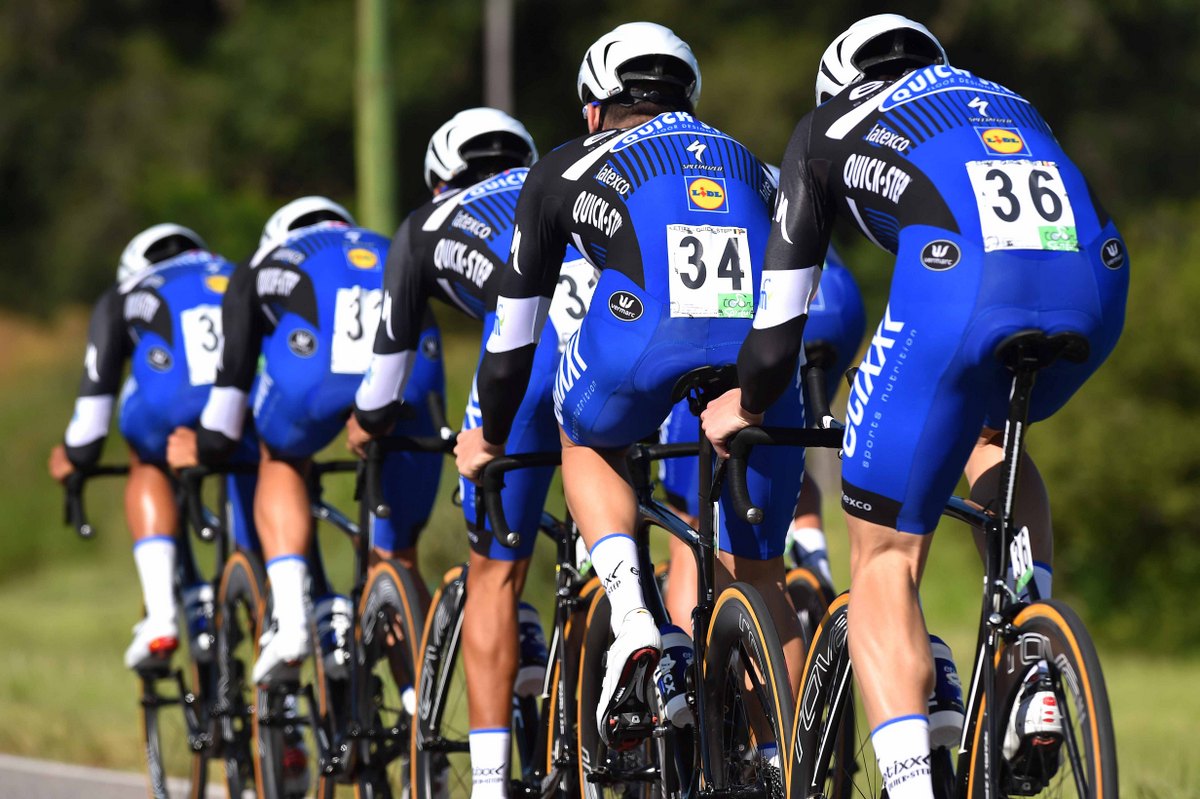
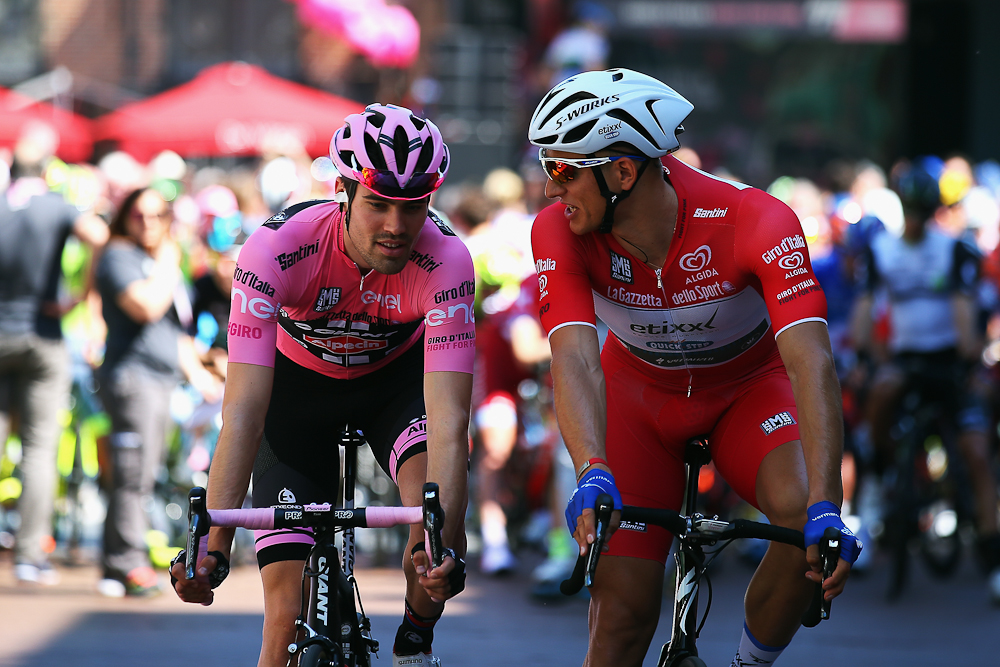
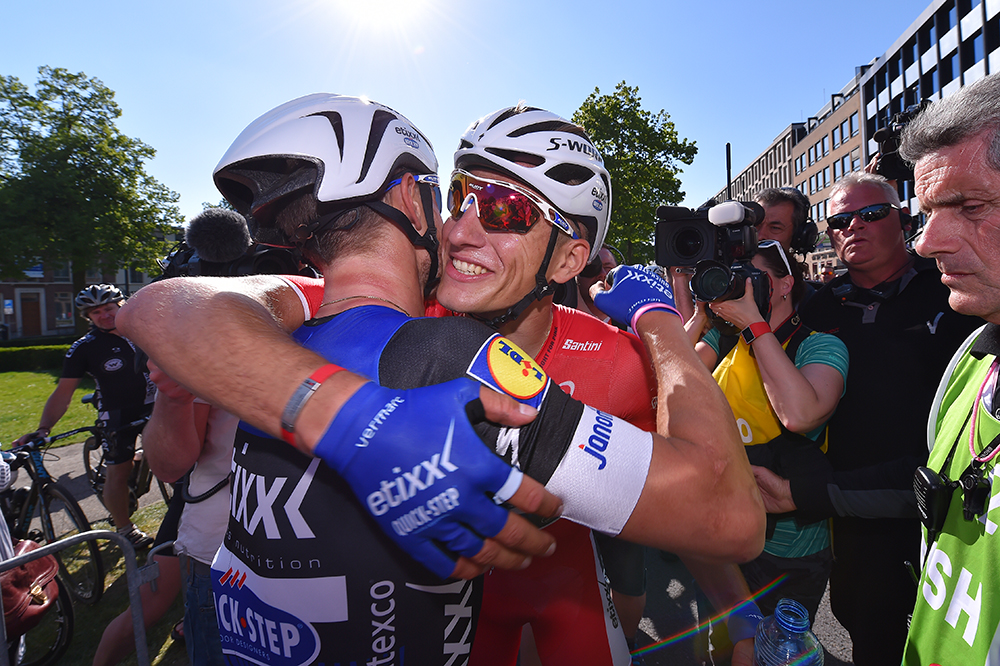
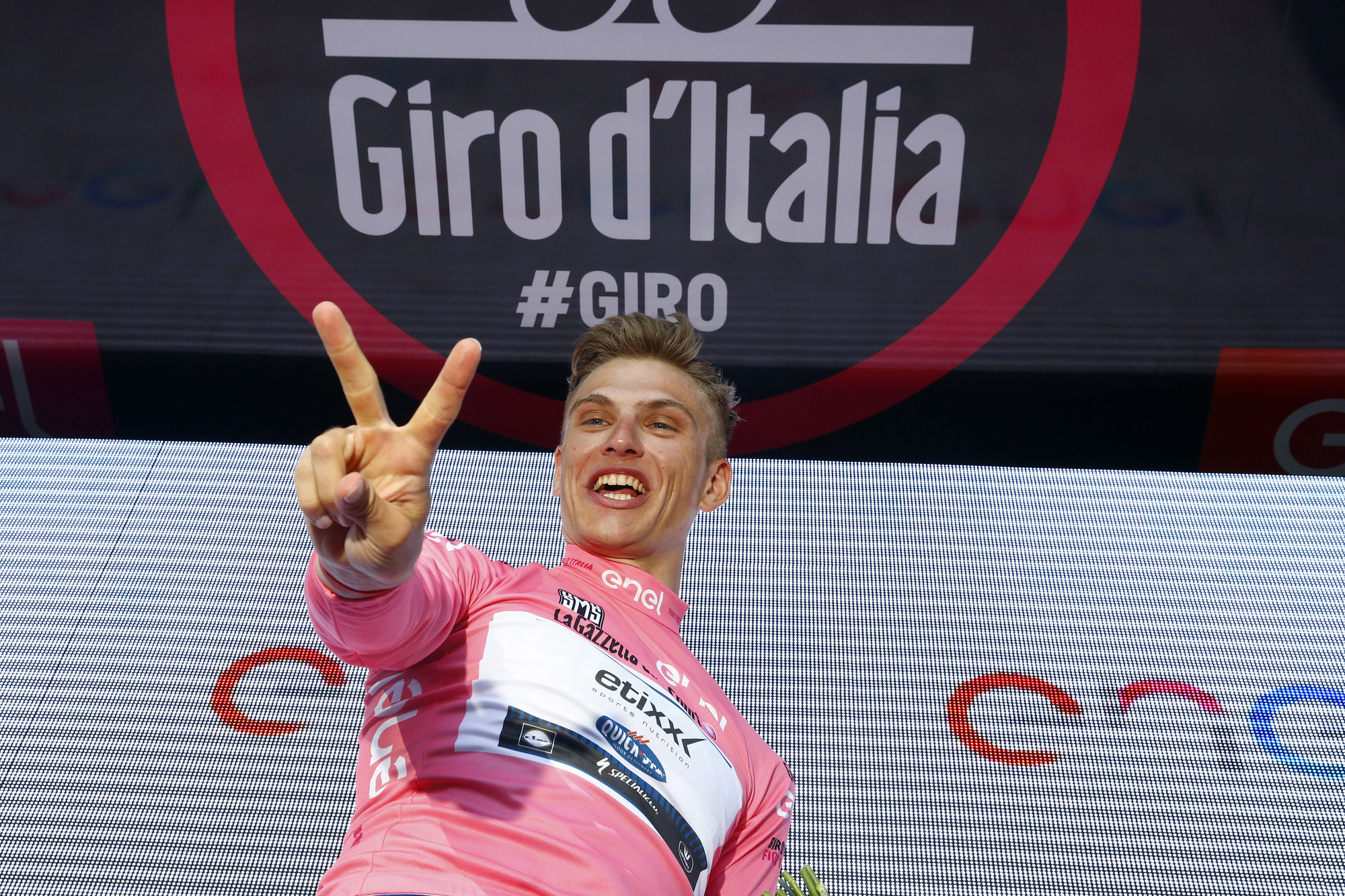
Over the course of this Giro d'Italia, which is only three stages old, Marcel Kittel has repeatedly made the effort to point out that his leadout team here is 'inexperienced'. Not that it has shown; Etixx-QuickStep have clearly been the most prominent force on the two flat opening road stages, and have delivered the German to a pair of resounding victories.
Kittel's travails of 2015 are well-documented but, after buying his way out of his Giant-Alpecin contract to force a move to QuickStep, there is little doubt remaining that the 27-year-old has returned to his 2014 status as the strongest sprinter in the world. His win tally this term, which now stands at ten and includes four WorldTour wins, puts him streets ahead of any other sprinter in the peloton.
With so much success so soon after the change of scene, Cyclingnews spoke to the riders and staff involved to see where it has all gone so right.
Kittel's leadership qualities
"He breeds confidence." (Tom Steels)
"I must say it has a lot to do with Marcel," says directeur sportif Tom Steels of the team's success.
"He's always calm – it's one of his big qualities. He will never yell in the radio; he breeds confidence. That way we can really build a group around him. All the good leaders we have, they are usually calm. For the team, it's priceless.”
For Bob Jungels, who is one of the “inexperienced” riders in question, Kittel's leadership qualities are plain to see.
The latest race content, interviews, features, reviews and expert buying guides, direct to your inbox!
"It's pretty easy to describe him: he's not the boss; he's the leader.
"It's simple but that's how it is. If you have a guy like Marcel, the whole team is 100 per cent motivated. I was super-nervous before yesterday's final because I've never done it – I was literally shitting my pants – but he told me 'believe in your strength'."
More on this story:
- Giro d'Italia stage 3 highlights - Video
- Giro d'Italia stage 2 highlights - Video
- Kittel and Giant-Alpecin part ways
Laying the foundations
"In Dubai we saw the base system was working." (Matteo Trentin)
How long would it take Kittel to adapt to his new surroundings, for a new system and new teammates to gel together, both in and away from the cut and thrust of racing? That was a question on many lips at the start of the season, but the response came immediately, with success at the first time of asking at the Dubai Tour.
Steels explains that nothing has really changed from Cavendish's time in terms of the coaching that has gone into building the new sprint train.
"The best training is always the races," he says. "You do some work on training camps, but then everyone goes off. You fine-tune it in the races. If there's an error you talk about it, and step-by-step you improve. The best place is always the races."
For his part, Matteo Trentin underlined the importance of the Dubai Tour in terms of building the foundations for a set-up that can prosper, as it has, on the biggest occasions.
"We went to Dubai, with nice wide roads, easy stages, and you can really be committed. You don't have to win in Dubai. If you do it's better but what we were able to see was that the base system was working, and then you can develop it further."
Sabatini as last man
“When I ride with Fabio I know it doesn't matter what happens – I have great confidence in him. He has the experience, the calmness to wait for the right moment.” (Marcel Kittel)
Fabio Sabatini, who spent several season with Liquigas, was signed in 2014 at the behest of Mark Cavendish to slot in behind final leadout man Mark Renshaw, yet that was never truly honed into what you'd call a well-drilled operation.
With Renshaw following Cavendish to Dimension Data last winter, Sabatini has moved one place up the chain, and seems to be thriving.
"It's better this year for me – I'm happier," he tells Cyclingnews.
"We have worked very hard both here and outside the races to perfect our co-ordinaton in the last few kilometers of each stage. My job starts in the last 1500 metres and I just know that Marcel is behind me. It has now been six months, we've done almost all the same races together, and it's a great partnership."
Fresh blood
"It's my first race where I'm really part of the leadout. I must say that I like it, especially if we always finish it off like this!" (Bob Jungels)
There are a few reasons that Kittel describes his support nexus at the Giro as "inexperienced". Maximiliano Richeze, the 33-year-old signed from Lampre-Merida to follow Kittel's arrival is absent, as are the likes of fellow over 30's Tony Martin and Iljo Keisse, both of whom can provide invaluable horsepower in leading the two true leadout men to the final couple of kilometres.
In the Giro, the two men who have done the leg-work to tee up Trentin and Sabatini are both in their early 20's. Lukasz Wisniowski, after an injury-affected neo-pro campaign last year, has been there on all but two of Kittel's victories this season, while Bob Jungels has only recently tried his hand in a leadout.
"It's quite funny because it's actually my first race where I'm really part of the leadout," says the latter. "I've been there in Romandie but here is a bit different maybe.
"The first time was Romandie where we had the victory, second time yesterday, third time today, so it's 100 per cent for me," he added with a smile.
"I'm not the guy who's going to fight through the whole peloton, but as soon as you put me on the front I think I can go quite hard. It's an important role to place the other guys. I must say that I like it, especially if we always finish it off like this!"
Chemistry
"They really have that feeling now" (Tom Steels)
It's not always easy to put your finger on what makes a good team - in any sport - click. That's probably why we use the word 'click' - often with the accompanying hand gesture. Nobody knows how exactly how it happens; it just happens. Going by the Giro performances and the way riders and staff have been celebrating and congratulating one another, It certainly seems to be happening at Etixx-QuickStep right now.
"If you see how they did it the last two sprints, they really have that feeling now," Steels adds. "That makes a huge difference – Marcel doesn't have to think about anything."
Jungels adds: “Sometimes it just works. It’s all happened quite quickly. I don't know if it's chemistry or whatever, but sometimes it just works.
"Our strongest point is that we believe 100 per cent in each other. It's such a great friendship between everyone. The guy in front of me and the guy behind me; everyone knows 'ok, he can pull that long, he's gonna give 100 per cent'."
The leadout before the leadout
"Without all of them, the win would not be possible.” (Marcel Kittel)
No sooner had Marcel Kittel pulled on the maglia rosa than he had praised each and every member of his team.
"I'm super proud of this amazing team. I have two super strong pilots in Matteo Trentin and Fabio Sabatini. They did a great job to put me in position, while the other guys kept us out of the wind all day. Without all of them, the win would not be possible."
While stage 1 was relatively straight forward, stage 2 was anything but, and the Etixx-QuickStep riders had to go the extra mile to keep control in the crosswinds before bringing back a lone attacker who held a worrying lead into the final kilometres.
"We used basically the whole team, except Brambilla, to pull," explains Sabatini. "[David] De la Cruz, [Carlos] Verona, and [Pieter] Serry were pulling from the start. They are not guys who can push the 53/11 chainring for ages but they're up there their doing the hard work.
"Then the guys who were supposed to be there from 3km – Jungels and Winowski – they were pulling from 5km."
The delivery
"In the last two kilometres myself and Matteo work together, do the good work, and then we can enjoy it." (Fabio Sabatini)
Sabatini makes it sound simple there but it's really anything but. The intensity of concentration required to perform a leadout – something often overshadowed by the sprinter's more glamorous exploits – cannot be understated.
As Trentin says, "You have less than one second to see what to do and it has to be right because if you do it wrong then you fuck it up 190km's worth of work in the space of 100 metres.
"[On stage 2] I saw Trek on the wheel of Wisniowski, so I went to close that. Then one from Bardiani went long, so I jumped on his wheel. Then I went, then one guy from Orica came up, so I jumped on his wheel. You need to be a little bit – how do you say it – cold headed. Be calm."
Finishing it off
"I'm in really good shape." (Marcel Kittel)
All the work that goes into setting up the final 150-200 metres would count for nothing if the sprinter himself was not on top of his game.
That could certainly not be said of Kittel last term - a season blighted by health issues and a disappearance of any sort of form. Sometimes a change of environment is exactly what's needed to rejuvenate a rider, and Kittel seems refreshed after a winter in which he also swapped his German home for a warmer base in Girona and, importantly, managed to stay illness-free.
"The way we worked as a team was one reason why I could present myself so well, but on the other hand I am also in really good shape," he says. "That's another factor, another reason for being able to be so quick."
Making it possible in the first place
"Nobody understood why I signed him" (Patrick Lefevere)
"If there's something I can be proud of, it's that I was in the right place at the right time to catch a rider like him," says Etixx-QuickStep team boss Patrick Lefevere.
"Last year he was lost, and nobody understood why I took him, so this is the answer."
Patrick is a freelance sports writer and editor. He’s an NCTJ-accredited journalist with a bachelor’s degree in modern languages (French and Spanish). Patrick worked full-time at Cyclingnews for eight years between 2015 and 2023, latterly as Deputy Editor.
